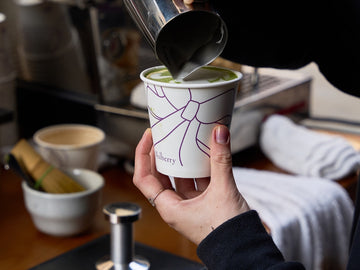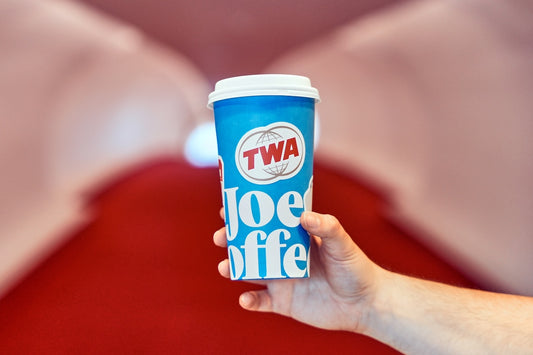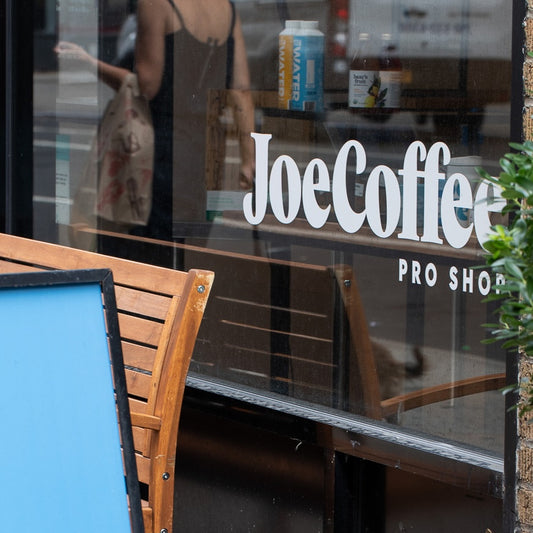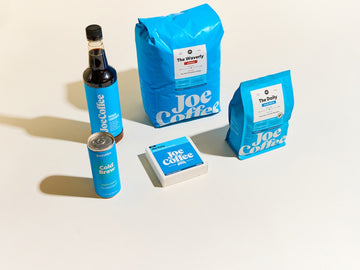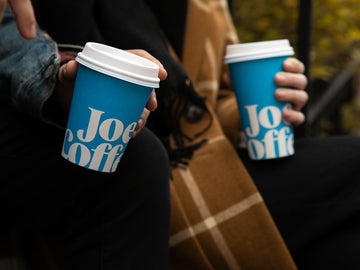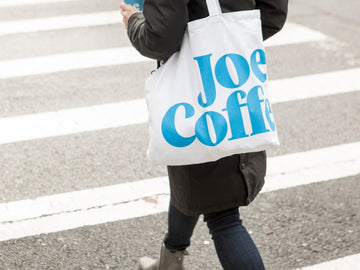This October, Joe Coffee is proud to support Community Voices Heard (CVH) through our in-cafe round-up campaign. CVH is a member-led, multiracial organization made up primarily of women of color and low-income families across New York State. For 30 years, they’ve been building power and driving change—tackling housing justice, economic equity, and civic participation through grassroots organizing and leadership development.
We sat down with Juanita Lewis, Executive Director of CVH, to talk about their mission, their impact, and how every round-up donation helps create a more just and equitable New York.
Since our last interview in 2021, what milestones or shifts has CVH experienced that you're most proud of?
I'm incredibly proud that we celebrated our 30th anniversary last year. Thirty years of organizing with low-income people of color, building power, and winning real change for New Yorkers.
I also need to be real about what we've faced in this last year alone. We've had to double down after an onslaught of attacks from the federal government. In February, our members from across our four chapters traveled to Albany and held meetings with over 40 New York representatives to demand our State step up. And in May, CVH Power members traveled to DC to fight back against cuts to HUD, SNAP, and Medicaid
We've also been holding People's Assemblies with our local elected officials in the Hudson Valley and Harlem to make sure they're hearing directly from their constituents. When the federal government tries to dismantle the safety net, we organize harder. That's the shift: we're not only defending what we have, we're demanding more.
How has CVH's work—and the needs of the communities you serve—evolved over the past few years?
The needs have intensified, honestly. Coming out of the pandemic, we saw the devastating impact on Black and brown communities – the economic instability, the housing crisis getting worse, the ongoing threats to our democracy.
What's evolved is our understanding that we can't just respond to crisis after crisis. We need to build a sustainable base. Our work has become more explicitly focused on centering Black women's leadership through our Follow Black Women project, because we know that's where transformative change comes from. We're not just organizing around individual issues anymore – we're building the infrastructure for long-term power.

What're some of the biggest challenges CVH is facing in 2025?
We are witnessing the same kinds of attacks that sparked CVH's creation. The federal government is once again targeting the most vulnerable among us: slashing safety net programs, undermining voting access, and demonizing those who use public assistance. It's a scary time for our communities, and the threats feel both familiar and urgent.
But here's what gives me hope: CVH was created precisely for moments like these. We were born out of necessity when our people were under attack, and we have spent three decades building the power to fight back. This is what we were made for.
Can you share a story of a recent campaign or initiative that illustrates CVH's impact on everyday New Yorkers?
I want to tell you about our East Harlem tenants who took on one of the city's worst landlords. Nearly 40 tenants across five buildings on East 103rd Street organized with us because their landlord had created unbearable living conditions – mold, blocked fire exits, a hole in the roof, doors that locked people inside their own buildings. But it was worse than just neglect; this predatory equity firm had stolen tens of thousands of dollars in security deposits from tenants.
CVH organized the tenants, we partnered with Legal Aid Society and Legal Services NYC, and we filed a lawsuit. Ultimately, we won almost $500,000 for those tenants. That's the power of organized tenants standing together.

What does "building power" look like for members of CVH in practice, and how do you see that power growing in the years ahead?
At CVH, we say “power” is organized people and organized money.
Building power looks like a CVH member going from never having knocked on a door to leading a team of other members. It looks like our members testifying at the City Council, meeting with their elected officials, and shaping policy agendas. Through our Ella Baker School for Organizing, we're always training the next generation of organizers.
Looking ahead, I see our power growing as we deepen our Follow Black Women infrastructure, as we connect fights across the state, and as we win policies that give people more time and resources to organize and just live their lives. Power grows when people see themselves winning and bring their neighbors into the fight. And power grows when we have this kind of monetary support from everyday people.
How has the Follow Black Women project grown since we last spoke, and what change has it sparked so far?
Follow Black Women has grown from a bold idea into real infrastructure. We surveyed over 5,000 Black women across New York State and found that education, housing, and healthcare are the priority policy areas for change. This year we organized a series of events focused on how we show up differently for this work because the conditions are different. The events included visioning sessions, panels on rest, and trainings on Ranked Choice Voting. These events set the foundation to build a policy agenda created by Black women that will guide lawmakers in 2026 and beyond.
This September, we held a powerful event with 100 Black women, Attorney General Letitia James, and mayoral candidate Zohran Mamdani to present our top priorities for the next mayor. We're holding two more sessions in October and November for Black women to dive deeper into writing a mayoral agenda. This is what it looks like when Black women move from being acknowledged as the wheels of political movements to actually being the drivers.
What does it mean for CVH to center the leadership of Black women, and how do you see that shaping broader movements for justice?
For more than 100 years, Black women have led America's progress on human rights. We know this, so why aren't Black women setting the agenda and driving policy?
When we center Black women's leadership, we're building from the most intersectional analysis. Black women experience racism, sexism, and often economic exploitation simultaneously. Solutions that work for Black women work for everyone.
I see this shaping broader movements by demonstrating that the most transformative change comes when those most impacted are leading. We are the architects of our liberation.
We're running a round-up campaign in cafes this month to support CVH. How do you see small, everyday contributions like this playing into larger movements for change?
Here's the truth: we've grown from a small and mighty group into a statewide, power-building machine, and that happened because of sustained support from everyday people.
When someone rounds up their coffee purchase to support CVH, they're making a statement about what kind of world they want to live in. They're investing in member leadership, in organizing infrastructure, in the long-term work that doesn't make headlines but builds power. Those contributions add up to door hangers, to organizing trainings, to trips to Albany and DC. And just as importantly, it means we're accountable to our communities. That's how movements are sustained – not by one big check from one big donor, but by many people investing in the future together.

Next time you’re in the cafe, round up your order and join us in supporting Community Voices Heard’s mission this October.




